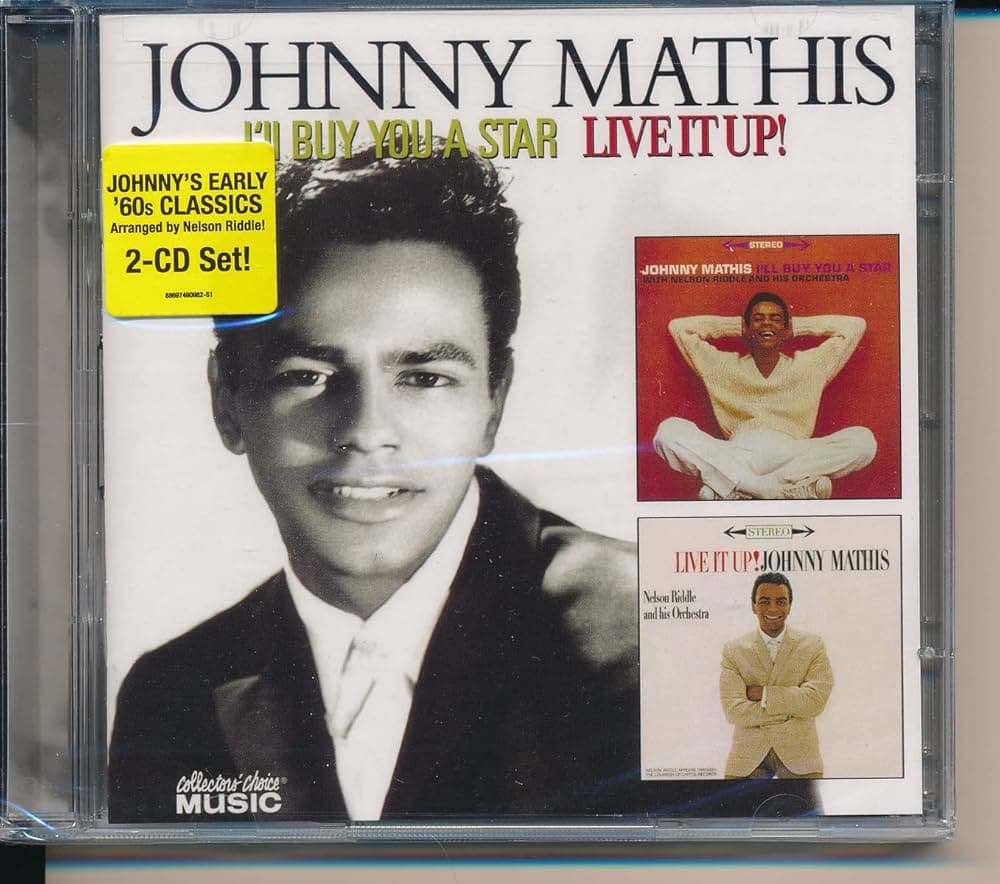
The enduring promise of an open heart, waiting patiently for the love that wandered away.
The year was 1959. A time when the world seemed caught between the youthful energy of rock and roll and the lush, romantic elegance of the traditional pop vocalist. Standing firmly in the latter camp, a young man with a voice of liquid gold, Johnny Mathis, released an album that would become a cornerstone of the American songbook: Heavenly. Nestled among the familiar standards and breathtaking arrangements was a gem that spoke to the enduring, hopeful quality of love—a song that might not have charted as a single, but became an indispensable part of Mathis’s eternal catalog: “I’ll Be Easy to Find.”
Released on August 10, 1959, the album Heavenly itself was a monumental success, soaring to No. 1 on the Billboard Top LPs chart and remaining there for an astonishing five months. Although “I’ll Be Easy to Find” was an album track and not a promotional single that garnered a spot on the Hot 100 or other singles charts, its inclusion on a Platinum-certified album that defined the mood of a generation meant it was heard and cherished in millions of homes. In the era of hi-fis and hushed living rooms, this song became the sonic backdrop to countless slow dances and heartfelt glances.
The genius of “I’ll Be Easy to Find” lies in its simple, aching premise, written by the evocative songwriter Bart Howard (most famous for “Fly Me to the Moon”). It’s the antithesis of the dramatic breakup anthem. The meaning is one of quiet, dignified devotion in the face of abandonment. The lyrics paint a picture of a lover who has been left but refuses to be bitter or move on entirely. Instead, he issues a tender, yet profound promise: “If you should ever want me, I’ll be easy to find.” It’s a message of accessibility and unwavering hope, suggesting that no matter where life takes the other person, their path back will never be complicated by pride or distance.
When Johnny Mathis sings it, his remarkable four-octave voice, famously described as both velvet and steel, transforms the words from a simple statement into a sacred vow. His signature style—the soaring, effortless high notes and the warm, intimate phrasing—gives the song an overwhelming sense of vulnerability. Unlike other singers who might have played it for melodrama, Mathis imbues it with a gentle, patient sadness, making it relatable to anyone who has loved someone who was simply “hard to keep.”
For older readers, this song evokes a specific memory: the world before cell phones and instant contact. The very idea of promising to be “easy to find” suggests a permanence, a fixed point in an increasingly restless world. It’s the kind of song that whispers of enduring fidelity through long absences, of waiting by the phone or the mailbox, not with resentment, but with an open-door policy of the heart. The orchestral backing on this track, a hallmark of the classic Columbia sound orchestrated by arrangers like Glenn Osser during this period, swells and sighs perfectly beneath Mathis’s tenor, capturing the deep emotional wellspring of a love that simply cannot be extinguished. It is the sound of enduring hope, packaged in a three-minute slice of pure, Heavenly romance.